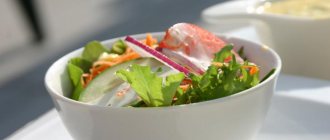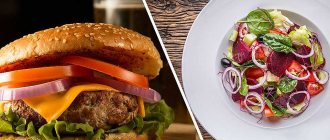To gain weight quickly, you need to take a balanced approach by focusing on the food you eat, the frequency of your meals, and exercise to increase lean body mass. Eating excess calories from processed foods, fast foods, and processed foods will not help you gain a healthy weight—it will only lead to inflammation, low energy levels, and other health problems. Instead, it is important to stick to eating nutrient-dense foods that will give your body everything it needs and allow you to gain weight in a healthy way.
Why and who should be concerned about gaining weight?
While there is a wealth of information about the health risks associated with being overweight or obese, it is important to note that there are also health risks associated with being underweight. Underweight is often associated with a poor diet or unhealthy eating habits, but sometimes it can be caused by certain health problems (such as malabsorption) that may make it difficult for a person to gain a healthy weight.
Technically, a body mass index (BMI) that is less than 18.5 is considered underweight. Based on the BMI table, for an adult woman with a height of 165 cm, a body weight of 52 to 65 kilograms is considered normal. An adult male who is 183 cm tall must weigh between 64 and 80 kilograms to fall within the normal body weight range.
The most common health risks associated with being underweight include:
- weakened immune system
- problem with disease resistance
- vitamin deficiency
- developmental problems (mostly in children and adolescents)
- fertility problems
- Irregular periods and increased risk of amenorrhea
- bone loss
- anemia
- kidney disease
- feeling tired or low energy
- thinning hair and dry skin
In 2014, the Swiss National Cohort Study Group examined the long-term association between underweight and mortality. The study involved more than 31,000 people aged 25 to 74 years. Underweight people made up 3% of the total number of subjects, and 90% of underweight people were women. The researchers found that, compared with people who were of a normal weight, being underweight was associated with an increased risk of death due to external causes such as accidents and suicide.
Evidence suggests that being underweight not only increases your risk of injury, but also worsens your chances of surviving a crash. Research also shows that there is a link between low BMI and depression, as well as an increased risk of suicide.
Risks associated with low body weight
Rule out any health problems that may be preventing you from gaining weight
Last but very important point. Before you start working on gaining pounds, you should first rule out any possible health problems that could interfere with your goal.
There are several diseases that will prevent you from getting better.
Hyperthyroidism
This disease is caused by an imbalance in the thyroid gland.
The thyroid gland influences metabolism through hormones. This gland is responsible for the production of thyroxine. The more thyroxine produced, the faster your metabolism and the more calories you burn.
Even with a good appetite, weight does not gain at all.
Symptoms of this disease include trembling hands and fingers, irregular or fast heartbeat, restlessness or nervousness.
Women's cycles may change.
Gastrointestinal problems
Gastrointestinal diseases prevent your body from properly absorbing nutrients from the food you eat.
Most people suffer from malnutrition due to digestive problems.
This condition can be aggravated by various diseases, such as irritable bowel syndrome, Crohn's disease, and celiac disease.
Symptoms include blood in the stool, abnormal bowel movements, and abdominal pain or gas.
Type 2 diabetes
Type 2 diabetes is most often diagnosed in adulthood.
This is a condition in which the body becomes resistant to insulin.
Insulin is responsible for regulating the amount of glucose in the body.
Glucose, on the other hand, is responsible for weight and appetite.
Symptoms of type 2 diabetes include fatigue, frequent urination, and blurred vision.
Smoking
Although smoking is not considered a disease, it is harmful to the body. It prevents you from gaining weight because nicotine suppresses your appetite.
Everyone knows that nicotine increases the metabolic rate.
It is known that smokers lose about 200 calories a day due to the substances that make up cigarettes.
If you have any of the above symptoms, contact your doctor immediately.
How to gain weight quickly and safely
Maybe you don't feel good enough and want to gain weight to become a healthier person? Or maybe you're unhappy with the way you look and want to build muscle? Either way, there are a few basic tips you can use to get better quickly naturally. Below we will tell you how to quickly gain weight for a woman and how to quickly gain weight for a man at home.
Increase your calorie and nutrient intake
When trying to increase your calorie intake, quality is actually more important than quantity. Eating high-calorie junk or processed foods will not help you achieve a healthy body weight. Instead, include nutrient-rich foods in your diet, which will increase your daily calorie intake and feel more energetic. Including nuts, seeds, raw cheese, and coconut or olive oil in your daily diet will increase your healthy calorie intake while also providing your body with all the nutrients it needs for overall health.
Don't bother counting calories in hopes of getting more benefits. You need to learn to intuitively feel how much food your body needs - this is a healthier approach. But if you're trying to gain weight quickly, here's a rundown of how to estimate the number of calories you need to consume. The exact number of calories you need to eat each day to gain weight depends on your metabolism, age, gender, and genetics, but the general rule of thumb is that you need to eat more calories than you burn in a day. The number of calories your body needs to function properly every day is called your total daily energy expenditure (TDEE). OSRE is generally higher in men than in women because men have more muscle mass.
Your BMR consists of your basal metabolic rate, which is the number of calories you burn while resting (due to pumping blood around your body, breathing, maintaining body temperature, etc.); and the number of calories you burn during combined physical activity. To gain weight, you need to consume more calories than your ER. To estimate how many calories you burn in a day, use the TDEE tracker, available on smartphones.
- If you are a man and wondering how to gain weight quickly as a man, to gain weight quickly, you need to consume an additional 250 extra calories per day above the norm.
- If you are a woman and you are wondering how to gain weight fast as a woman, consume an additional 125 calories per day above your VE. Start doing this and measure your progress after the first two weeks. You want to gain muscle, not fat, so you don't want to consume too many calories in one day.
Eat five meals a day
One of the main recommendations that nutrition experts give is to eat more frequently throughout the day. Two or three meals a day does not allow you to gain weight effectively and safely—in fact, you should aim for five meals a day. These five meals should include high-quality protein foods, complex carbohydrates (instead of refined carbohydrates) and healthy fats.
Eating smaller amounts of food throughout the day, rather than larger portions less frequently, will be easier on your digestive system and won't leave you feeling bloated and sluggish. At first, it may seem like you're eating large amounts of food every day, but over time, your body will get used to it and begin to feel hungry when it's time to eat.
Nutrition experts also suggest snacking before bed. You may have heard that you shouldn't eat right before bed, but our bodies actually work hard to repair themselves when we sleep, so feeding your body extra protein and carbohydrates can help promote weight gain.
Include healthy snacks
The following recommendation will help you gain weight. Having healthy snacks between meals will increase your daily calorie intake and provide your body with the protein and carbohydrates it needs to increase energy levels and gain weight. Some great high protein snacks include:
- dried fruits
- vegetables and hummus
- probiotic yogurt with seeds, nuts and berries
- hard boiled eggs
- Gluten-free crackers with peanut or almond butter
Even eating fruit as a snack has been found to be associated with lower levels of anxiety and emotional stress, as well as improved cognitive function and energy levels. All these factors can help you gain weight quickly in a healthy way.
Move more
You may think that you don't need to exercise because you're trying to gain weight, not lose it. But exercise, such as strength training, yoga, and explosive training, will help you build muscle and gain healthy body weight. To gain weight quickly, you shouldn't focus on gaining fat mass, which is associated with health risks such as high triglycerides and LDL cholesterol, high blood pressure and insulin resistance. The best way to gain weight quickly is to focus on building muscle mass, which requires physical activity at least five times a week.
Find your ideal macronutrient ratio
Once you have determined the daily amount of calories you need to gain weight, you need to find the ideal combination of macronutrients.
This means dividing your calories in the correct ratio between carbohydrates, proteins and fats.
Each of us has a different body structure, and therefore each of us needs a different approach to creating an ideal body.
There are several steps to determine your macronutrient ratio:
- Determine what exactly you want to achieve with your diet. Most likely, if you are reading this article, then you want to get better. To do this, you need to focus on carbohydrates. This means that 40-60% of total calories should come from carbohydrates, 25-35% from protein and 15-25% from fat. It is this ratio of macroelements that stimulates muscle growth.
- Secondly, you need to determine your body type. There are three main human body types. Some people have a mixture of the two types.
What foods make you gain weight quickly?
If you want to gain overall weight and muscle mass naturally, you need to make some changes to your diet. Stop eating foods that do not provide your body with the nutrients it needs to maintain proper hormone balance, body function, energy levels and muscle growth. Focus on consuming the healthiest foods that will provide your body with macronutrients: fats, proteins and carbohydrates.
If you are a girl and wondering how to gain weight quickly for a girl, or if you are a guy and wondering how to gain weight quickly for a skinny guy - the answer to these questions is extremely simple - in addition to physical activity, you need to focus on proper nutrition.
These are the foods that make you gain weight quickly:
- Healthy fats . There are two types of healthy fats that will help you gain weight and muscle mass naturally. Omega-9 fatty acids are a type of unsaturated fat found in vegetables and animal fats. Benefits of omega-9 include increased physical activity and increased energy. Some of the best sources of omega-9 fatty acids include: avocados, olive oil, almonds, and macadamia nuts. The short-chain fatty acids found in ghee, organic butter, and coconut oil will help you gain weight and muscle mass quickly without storing as fat in your body. Foods rich in omega-3 fatty acids are also important, so you should eat plenty of egg yolks, walnuts, chia seeds, flaxseeds and fatty fish.
- Pure protein . When it comes to consuming protein (protein) in order to gain weight quickly, you need to calculate your protein intake using the following formula - if you weigh 60 kilograms and that is underweight, you need to eat about 120 grams of protein per day, i.e. 60×2=120 grams. Get those grams of protein from healthy sources such as domesticated beef, wild-caught fatty fish such as mackerel, salmon, herring, etc., domesticated chicken, turkey, and eggs. High-quality protein powders (for athletes) can also help you meet your daily protein needs. Nutrition experts recommend using high-quality whey protein or bone broth protein in powder form.
- Carbohydrates . To gain weight quickly, it is recommended to consume more gluten-free carbohydrates. Carbohydrate foods give you energy and contribute to overall weight gain, so they should be present in both main meals and snacks between meals. Research shows that combining carbohydrates with protein produces a greater anabolic response than eating protein alone. An excellent source of carbohydrates are root vegetables, which are a clean source of complex carbohydrates and important nutrients. Starchy vegetables such as yams, potatoes and yams (sweet potatoes) provide fiber, nutrients and complex carbohydrates without excessive sugar. Gluten-free grains are also great options as they can prevent bloating and increase energy levels. Some of the best gluten-free grains are quinoa, amaranth, buckwheat, brown rice and non-GMO corn. Fruits are also an excellent source of carbohydrates. Eat bananas, apples, mangoes and berries.
Read: 25 best foods for gaining muscle mass.
Foods you should avoid when gaining weight:
- White sugar . The truth is that sugar is bad for you and if you consume it in excess, it will simply destroy your body eventually. Eating white, refined sugar leads to cardiovascular disease, metabolic disease, leaky gut syndrome, diabetes, fatigue and unhealthy weight gain. Avoid foods containing added or artificial sugars and sweetened drinks.
- Refined carbohydrates . Refined carbohydrates are unhealthy foods that are devoid of nutrients and enter the bloodstream like an injection of sugar. Consuming refined carbohydrates causes a release of insulin, which turns sugar into stored fat instead of providing your body with the energy to build muscle. Eating refined carbohydrates to gain weight will also negatively impact your insulin, cholesterol, and triglyceride levels. Stay away from white bread, pasta (except durum wheat pasta), white rice, baked goods, refined wheat, barley and other grains.
- Hydrogenated fats . Hydrogenated oils contain trans fats, which interfere with normal cellular metabolism and are linked to many health conditions, including cardiovascular disease, digestive disorders and high cholesterol. These rancid oils, such as vegetable oil, soybean oil, corn oil, and canola oil, slow muscle recovery after exercise, prevent healthy weight gain, and cause inflammation in the body.
Take creatine
Creatine is usually sold as a white monohydrate powder that must be diluted in liquid. This is a natural compound found in muscle cells, often used in sports and bodybuilding.
For what? Because it stimulates the body to produce more energy.
Creatine is a dietary supplement. Athletes use it regularly, it increases performance and effectiveness in training. It affects the muscles of the body, increasing the amount of fluid in it. The body retains more water, and in just one week a weight gain of 450 g to 1,300 kg is obtained. By absorbing fluid into the muscles, creatine increases their strength.
It is an “osmotically active substance,” meaning it allows muscles to contract faster and better. When using creatine, you must adhere to the correct dosage of the supplement. The recommended dosage is 5 grams per day, but it is better, of course, to consult a specialist before deciding on the dosage.
Try to drink more while taking creatine to avoid dehydration.
If you want to achieve an ideal body, then drink creatine during meals and preferably after training.
Exercises to Optimize Weight Gain
If you are wondering how to gain weight and muscle mass quickly through exercise, you need to focus your attention and efforts on the right types of exercise that will help you build muscle mass without burning too many calories. Limit the amount of aerobic exercise you do per day. Cardio exercise burns a lot of calories and works against your weight gain goals, so instead of long runs, take shorter walks, which will help you relieve stress and increase your appetite. Or for cardio, do explosive workouts, which involve exercises that cause your heart rate to rise near maximally for 30-60 seconds, then rest for 30-60 seconds. Explosive training at home will help you build muscle quickly. Try jumping jacks, squats, and high jumps to give your heart a near maximal workout.
Focus on strength training, which includes lifting weights and doing strengthening exercises such as CrossFit, Yoga and Barre workouts. When you're bodybuilding, do six to twelve reps per set, and work out five days a week for about 1 hour. This will help you gain overall weight and muscle mass.
A study published in Current Sports Medicine Reports shows that physically inactive adults lose 3 to 8 percent of muscle mass every ten years. Ten weeks of strength training has been shown to:
- increased muscle mass;
- improving physical performance and cognitive abilities;
- improving the health of the cardiovascular system;
- increasing bone mineral density.
Strength training can also relieve discomfort associated with arthritis, reduce low back pain, and reverse specific aging factors in skeletal muscle.
Do you want to know how to gain weight for a girl faster at home? Forget about any myths you've heard about strength training being only for men. Research shows that such training improves women's physical, emotional, intellectual and social well-being. Strength training helps women (and men) gain lean muscle mass, maintain muscle strength, and improve agility and flexibility.
Causes of underweight
Before you begin to normalize your shape and think about how to gain weight , you need to understand the reasons for your constitution. It is recommended to analyze the root causes in conversation with a qualified physician, then the conclusions will be more correct and the response to them will be more adequate.
Low weight factors:
- hereditary factor, genetically determined body constitution - if everyone in your family, or sometimes even a distant relative, is thin, then do not be surprised if you take after him by breed; the thinness caused by this factor is almost impossible to overcome;
- manifestation of the disease - a person tends to lose weight both during the flu and as a result of cancer; there are a huge number of diseases that affect both energy consumption and its absorption from food; their list begins with infectious and parasitic lesions of various localizations and ends with disorders of the hormonal, digestive, and nervous systems;
- psycho-emotional factor - it is worth considering separately, although diseases of the nervous system were mentioned above; against the background of mental disorders, constant stress or in the case of anorexia nervosa, it is almost impossible to do without professional help, and eliminating the cause of the lack of appetite or disturbances in the absorption of food is extremely necessary;
- excessive physical activity - the number of calories consumed should correspond to the amount of energy expended; if a person eats little while exhausting himself with sports, working hard or actively resting, then his body will be distinguished by considerable fragility, which needs to be corrected;
- poor appetite - lack of desire to eat enough or the habit of consuming little food uncritically as long as your weight is within normal limits; otherwise, it is advisable to be more responsible and conscious about portion sizes.
What Not to Do to Gain Weight Fast: Healthy Weight vs. Unhealthy Weight
Here's a common mistake people make when trying to gain weight quickly - they eat tons of high-calorie foods that have no nutritional value. Think about how this diet makes you feel after a few days: fatigue, bloating, inflammation, moodiness, inability to concentrate, poor sleep, inability to exercise, and the list goes on.
Of course, eating these foods occasionally will not cause your condition to noticeably worsen, and the majority of your diet should consist of nutrient-dense, fresh, unprocessed, natural foods. Here's a simple way to understand what our bodies need to gain weight and what we should avoid.
Healthy weight gain occurs by consuming:
- Organic, high quality protein
- Healthy Fats
- Unrefined complex carbohydrates
- Lots of fresh fruits and vegetables
- Nutritious, high-protein shakes
- Fresh fruit and vegetable juices
- Several small meals throughout the day
- High protein snacks between meals
And:
- 7-9 hours of good night sleep
- Stress-free environment
- Strength training mixed with light cardio
Unhealthy weight gain occurs when you consume:
- Processed, factory-processed, refined and packaged foods
- Products containing refined sugar and trans fats
- Sweetened drinks
- Alcohol
- Very large servings once or twice daily
- Unhealthy snacks and foods (such as potato chips and baked goods)
And:
- If you sleep less than seven hours a night
- Are you experiencing chronic stress?
- Lead a sedentary lifestyle
Basic diet rules for gaining muscle mass
During intense training and physical activity, a significant portion of energy is consumed. Costs are covered with food. By limiting your diet, a person will not receive enough substances necessary for weight gain.
The weight gain diet is based on one principle: you need to get more calories from food than you burn. Only by following this rule can you really achieve positive results.
You should also take into account the following several equally important menu rules for weight gain:
- Eat small meals. You need to eat 5-6 times a day. Portions are small. When eating a significant amount of food at one time, the body will not be able to digest all the nutrients. Some vitamins and minerals will be lost, and the muscles will not receive the required amount of energy on time. The rest of the nutrients will be stored in fat deposits.
- There are high-calorie foods. You should eat frequently, high-calorie foods - 70% of the daily diet. If you eat low-calorie foods, your body will not have enough energy. You will have to increase the number of meals, and the digestive organs will be overloaded.
- Limit the consumption of fast carbohydrates and fats. Consumption of such foods leads to an increase in body fat. Fast carbohydrates are flour products, sweets, baked goods, and candies. The calorie content of the food is high and is absorbed instantly. The body does not have time to quickly waste the energy received. Humans need animal fats in limited quantities. Lard and sausages consumed in excess contribute to an increase in fat deposits.
- Consume 2.5-3 liters of water per day. Rapid weight gain is stressful for the body. Accelerated metabolism and increased metabolism require large amounts of fluid. Lack of water will cause disruption of the digestive tract and worsen overall health. Also, with dehydration, muscles will stop growing.
- Receive 70% of calories before 16:00. Afterwards, eat proteins - cottage cheese, eggs, fish. Fast carbohydrates and fats are eaten before 12:00 and are acceptable before training.
- Diet of athletes. Professional athletes eat 2 hours before exercise and 1 hour after. You should eat as well. Constant training and an enhanced diet will accelerate the process of muscle growth.
- Compliance with the principle of the “food pyramid”: 60% – carbohydrates, proteins – 30%, fats – 10%. Most of the carbohydrates consumed are cereals, potatoes, and fruits. Proteins can be obtained from sports nutrition containing protein in the required quantities. Fats – vegetable, animal – in minimal quantities.
How to maintain a normal weight
If you've had trouble gaining weight in the past, you'll likely need to keep working on it even though you've reached your goal. If you go back to your old eating and exercise habits, you'll likely lose the weight you worked so hard to gain.
To maintain a healthy weight, continue to consume more calories than you burn in one day. Focus on eating smaller, more frequent meals so you never feel full and use snacks as a way to get more nutritious calories. If you need more calories during the day, try drinking special high-calorie nutritional shakes for athletes. Take quality protein powder in milkshakes, kefir or probiotic yogurt, leafy greens, avocado, fruit, and coconut or almond milk. This will give you an extra boost of protein, carbs and healthy fats.
Finally, keep moving. Stick to a schedule of strength training and light cardio. This will allow you to continue to build or maintain muscle rather than losing muscle mass.
Don't drink water before meals
Water is known to reduce hunger and reduce food consumption. Water is great for those who are losing weight, and not for those who are trying to gain weight (not to be confused with the daily fluid intake, both need quite a lot of it - about 2.5 liters per day, but there is a difference when to drink it).
The main reason for this is that water fills the stomach and makes you feel full. Even if you drink while eating, you still get the feeling that you don’t want to eat anymore. When we eat, our stomach gets the feeling that the digestion process has begun, and it begins to produce gastric juice.
The water entering at this moment dilutes the gastric fluids, which prevents the further breakdown of food.
There is no need to drink water before meals, this will help the digestion process. Water does not interfere with gastric juice, but it somehow suppresses gastric secretion.
Drinking large amounts of liquid at meals thins the blood, leading to an imbalance of electrolytes. This condition is called hyponatremia. It leads to digestive problems, which people who are underweight should avoid. At worst, this condition can cause muscle fatigue and irregular heartbeat.
You can drink water about an hour before meals. It will be used to produce gastric juice in the future.

Final Thoughts on How to Gain Weight Fast
- If you are unable to gain weight, there are several dietary and lifestyle changes you can make to gain weight in a healthy manner. Increase your intake of nutrient-dense, calorie-dense foods, eat five meals a day, snack between meals, and start exercising to build muscle mass.
- The most important foods to eat to gain weight quickly include quality sources of protein, healthy fats (including omega-9 and omega-3), and complex carbohydrates (from starchy vegetables and gluten-free grains).
- Limit your cardio and focus on strength training instead. This will help you build muscle, thereby increasing your body weight.
- Don't include empty calories in an attempt to gain weight - this will only lead to health problems such as high cholesterol and insulin resistance. Opt for nutrient-rich foods that will boost your energy levels and keep your body functioning properly.
Strength training

The pounds you gain represent both fat and muscle tissue. And if you don’t get rid of the former, the result will not be rounded feminine outlines, but folds that will in no way add attractiveness to the figure. This can be avoided by strength training aimed at increasing mass primarily through muscles.
Energy consumption for an hour of strength exercises ranges from 350 to 450 kilocalories, which will not allow weight loss, but will give a significant impetus to the growth of muscle tissue. It is the part of the body that is being worked that will increase in volume. Thus, you can easily adjust your silhouette and the most problematic areas by pumping up your buttocks, abs, calves, and so on. The main thing is to choose the right exercises.
Weekly menu for gaining muscle mass
Nutrition for muscle growth must be complete, high-quality, fractional. The diet consists of 3 main meals and 2 snacks.
Features of the menu for weight gain:
- Calorie content – 3000 kcal.
- Water – 3 liters/day.
- Avoid sweets.
An approximate menu option is presented in the table:
| Day of the week | Menu |
| Monday | Breakfast: oatmeal with apples, nuts, toast with cheese, tea. Snack: dried fruits. Lunch: chicken fillet, potatoes, vegetable salad, bread, butter. Afternoon snack: banana, cottage cheese. Dinner: baked salmon, rice, vegetable plate. 30 minutes before bedtime: kefir. |
| Tuesday | Breakfast: Buckwheat porridge with fruits, almonds, milk, bread. Snack: cottage cheese, sour cream, honey. Lunch: cabbage soup with beef, mackerel, baked with vegetables. Afternoon snack: homemade yogurt, bread. Dinner: boiled chicken breast, potatoes, vegetables. 30 minutes before bedtime: kefir. |
| Wednesday | Breakfast: rice milk porridge, 6 egg omelette. Snack: yogurt, raspberries. Lunch: stewed turkey fillet, durum pasta, butter, tomatoes. Afternoon snack: toast with cheese, cottage cheese with jam. Dinner: river trout, brown rice, vegetable salad, sour cream. 30 minutes before bedtime: milk. |
| Thursday | Breakfast: omelette, chicken fillet, steamed vegetables. Snack: smoothie made from milk, banana, strawberries, peanuts. Lunch: boiled veal, grilled vegetables, potatoes. Afternoon snack: salmon sandwich, tomato juice. Dinner: vegetable stew, flounder, peppers, cucumbers. 30 minutes before bed: yogurt. |
| Friday | Breakfast: milk pasta soup, eggs - 2 pcs, cheese, bread, butter. Snack: milkshake, cottage cheese. Lunch: borscht with beef broth, beef, sautéed vegetables, buckwheat. Afternoon snack: nuts, dried fruits, banana. Dinner: mackerel, potatoes, sliced vegetables. 30 minutes before bedtime: kefir. |
| Saturday | Breakfast: oatmeal, milk, banana, strawberries, bread. Snack: cheesecake, homemade yogurt. Lunch: solyanka, vegetables baked with chicken, bread. Afternoon snack: milk smoothie, cottage cheese. Dinner: rice, baked salmon, vegetable salad. 30 minutes before bedtime: kefir. |
| Sunday | Breakfast: buckwheat porridge, omelette, bread. Snack: cottage cheese casserole. Lunch: vegetable soup, veal, pasta, cucumber. Afternoon snack: cottage cheese, jam, kiwi. Dinner: rice, chicken breast, steamed beets. 30 minutes before bed: homemade yogurt. |
Diet: allowed foods, prohibited foods
In order to gain weight, nutritionists advise sticking to the following proportions of carbohydrates, fats and proteins (in percentage) in your daily diet: 45/30/35 or 40/25/35, respectively.

Foods that are prohibited in weight loss diets are also undesirable - they usually do not provide any benefit to the body as a whole. These are marinades, smoked foods, pickles, baked goods and white bread, fast food, snacks, chips, soda, packaged juices, margarine.
The body will benefit from proteins obtained from seafood, various types of meat, fish, poultry, and milk. As for carbohydrates, you need to pay attention to all types of cereals, fruits and vegetables. Supplementing your diet with grain bread and bran bread will benefit the body - these products not only add additional calories to the diet, but are also a source of fiber.
Among fats, you should give preference to vegetable oils - olive, sesame. Healthy fats are found in seeds, nuts, avocados, dairy products, and fatty fish.
Daily value of calories, proteins, fats and carbohydrates
Muscle growth will occur with regular training and sufficient energy. Sports supplements will not provide the optimal amount of calories. To restore the body's strength and increase muscle mass, you need to consume a significant amount of proteins, fats, and carbohydrates.
It is convenient to calculate your daily calorie intake using the Lyle MacDonald formula. To do this, you need to multiply your own weight by 35.
For example, for a guy weighing 70 kg: 70 x 35 = 2450 kcal. The data is based on a thin man with a fast metabolism. By adding 10-20% to the resulting value, you get the caloric intake for weight gain: 2450 x 1.2 = 2940 kcal.
By consuming 2940 kcal per day, the expended energy will be restored, and muscles will gradually increase.
For men
- Protein is the basis for muscle growth. With constant strength training, the daily protein intake will be 1.5-2.5 grams per 1 kg of body weight. Minimum – 150 grams per day. For a guy weighing 70 kg, 175 grams is enough. protein to speed up weight gain. Start with a smaller amount and gradually increase the dose. A sudden introduction of a large amount of protein into the diet will stress the body. Choose animal sources of protein with low fat content: chicken fillet, low-fat fish, low-fat cottage cheese, eggs. Vegetable proteins contained in beans, lentils, sesame are absorbed in full when consumed together with animals. After sports activities, you can drink a protein shake.
- Carbohydrates are a source of vitality; a deficiency leads to depression, apathy, and weakness. When eating to gain muscle, you need 5-6 grams per 1 kg of weight. For a thin man - 420 grams per day. Two hours before training, consume slow carbohydrates (buckwheat, oatmeal, rice), an hour before, an hour after - fast ones.
- Fats are 1-2 grams per 1 kg of weight. Fat intake also depends on age category. Maximum daily dose: up to 28 years – 160 g;
- 29–39 years old – 150 g;
- category 40+ – 70 g.
For women
- With intense training, the body requires more protein. Insufficient protein will affect the condition of the skin, hair, and nails. The minimum daily intake is 1.5 grams per 1 kg of weight: 50 kg – 75 g.
- 55 kg – 83 g.
- 60 kg – 90 g.
- up to 27 years – 118 g.











